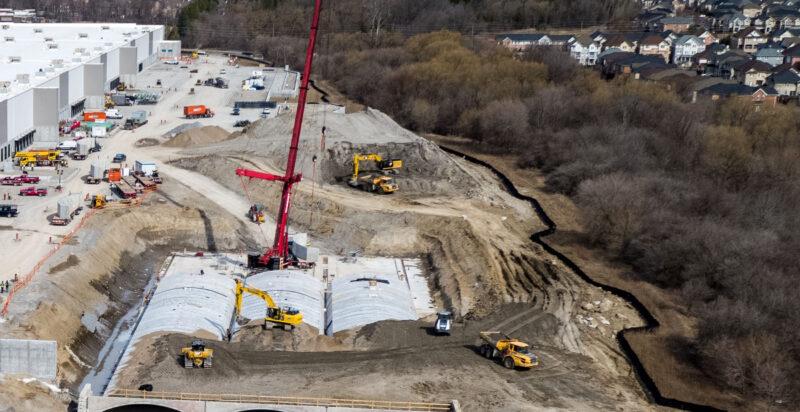Professional Development & Continuing Education for Civil Engineers
Civil engineering is a competitive and continuously evolving field that deals with the design, construction, and maintenance of the physical and naturally built environment. It is a difficult and long process for one to become a civil engineer – one must complete a professional university program, work under a licensed engineer for a number of years as an intern, then write a professional practice and ethics exam. However, once one has become licensed, their learning cannot stop. Civil engineers must stay at the forefront of the field, constantly upgrading their skills, and learning about the constant advancements. In this article we will discuss why it is important for civil engineers to continue professional development throughout their careers and the best resources for continuing education.

Why is continuing professional development important for civil engineers?

Civil engineering is an ever evolving field. It is crucial for engineers to stay current with practices and new concepts. Technologies, methods, and materials are constantly advancing. Advancements in safety practices, environmental concerns, and building codes are causing regulations and standards to continuously change.
By staying current with these advancements and updates, civil engineers can offer more efficient, cost-effective, and durable design solutions and construction methods. They can ensure that their structures can withstand natural disasters, environmental changes, and other challenges while enhancing public safety and well-being.
Exposure to new concepts and ideas stimulates innovation and creativity. By staying current, engineers can explore unconventional solutions, challenge existing norms, and contribute to the advancement of civil engineering.
And lastly, civil engineering is already a very competitive industry. Staying current will give civil engineers a competitive edge by enhancing their reputation, credibility, and marketability.
The easiest way to stay current and competitive in the civil engineering field is through ongoing professional development.
Where can I find continuing education courses for civil engineers?
Many engineering licensing bodies require civil engineers to stay up to date with a certain number of education hours yearly. These hours vary from association to association, and are called various things across organizations, such as professional development hours (PDH), continuing professional development (CPD), or continuing education hours (CEH).
Below is a list of places you can visit to find continuing education courses for the civil engineer:
1. Professional Associations and Organizations
Professional associations and engineering societies, such as the American Society of Civil Engineers (ASCE), the Institution of Civil Engineers (ICE), Engineers Canada, Canadian Society for Civil Engineers (CSCE), or similar organizations in your region can provide access to in-person and virtual conferences, workshops, webinars, and publications that offer professional education opportunities.
2. Online Courses and Webinars
Various online platforms, such as Coursera, edX, Udemy, or LinkedIn, provide a wide range of courses relevant to civil engineering topics. CEDEngineering.ca provides CPD for the professional engineer in various disciplines and is a great resource to check out if you are practicing in Canada.
3. Continuing Education Programs at Universities
Some universities offer virtual or in-person continuing education programs specifically designed for engineering professionals. They can be in the form of short courses, workshops, or online modules on specialized topics. Check universities such as MIT OpenCourseware, University of Waterloo WatSpeed, Toronto Metropolitan University The Chang School of Continuing Education, University of San Diego Professional and Continuing Education, or Michigan State. This is such a small fraction of universities offering courses. Be sure to check your local university for advanced graduate certificates or executive and professional education programs.
4. Government Agencies and Research Institutions
Many government agencies and research institutions offer seminars, training programs, and resources related to civil engineering advancements and regulations. Check out the Federal Highway Administration (FHWA) in the United States, Ontario Good Roads Association (OGRA) in Ontario, Canada, or your state/province Department of Transportation or Environment.
5. Industry Publications
There are a number of industry journals and magazines that provide the latest on trends, technologies, and best practices in the field of civil engineering. Check out the Civil Engineering Magazine, Structure Magazine, Civil + Structural Engineer, or your associations publications.
6. Vendor Training and Product Seminars
Many companies and vendors that provide engineering software, equipment, and materials offer training sessions and seminars to educate engineers on how to use their products and the latest advancements in their field. Whether your design requires water valves, chambers, permeable pavement or concrete girders, contact your local suppliers to see what education they can provide.
There is no shortage of places to find professional continuing education for civil engineers. By utilizing the resources outlined above you can ensure you stay up to date with the latest industry standards or practices, advancements, and new concepts to give you that competitive engineering edge.








